The Olmecs were the first central american civilization who achieved a lot. They were talented sculptors, artist, and architects who were very religious. They specifically believed in a jaguar god, and the symbol of the jaguar appeared very often in the Olmec culture. They were also polytheistic, and believed in other gods, such as the Maize god (maize was their main staple). They built the first pyramids in America and also achieved lots of things, such as the compass, calendar, a water and drainage system, mathematics discoveries, and so many more things.
Olmec Farming and Settlements
What was America before it became the place it was today, and who lived there? Before, North America and South America weren't filled with all the people, technology, and food we have today; however, there were some civilizations that helped the growth of America. The Olmecs (1300 BC - 400 BC) were considered the first central American civilization, and their influence on later civilizations was larger than you could imagine.
The Olmecs
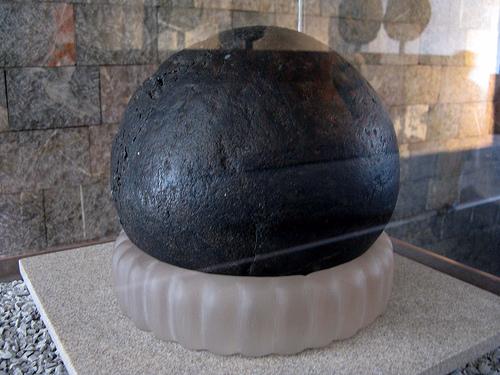
Did you know?
The Olmecs often traded rubber, which they collected from the trees in the rain forest for things that they did not have, from distant lands, such as obsidian. They were the most known for rubber, in fact they actually got their name from it. The word "Olmec", actually means "People of the Rubber".
Quiz
The Olmecs built the first _________ in the Americas.
- Pots
- Pyramids
- Carts
- Homes
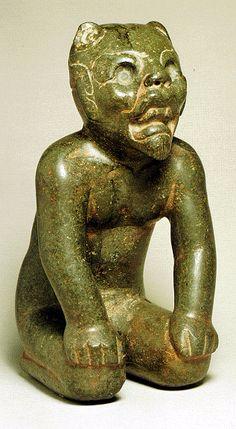
Olmec jaguar god sculpture
Olmec Settlement
The Olmecs lived on the southern Gulf Coast of Mexico which today is known as the states Veracruz and Tabasco. Most Olmec lived in small villages, while others lived in larger towns. These towns were religious and governmental centers that were filled with beautiful temples and plazas. The major Olmec urban area was San Lorenzo Tenochtitlán, at the time the largest city in Mesoamerica. It was a ritual and political system that had an elaborate water and drainage system. They created a lot of things religiously and culturally that influenced many other cultures later.
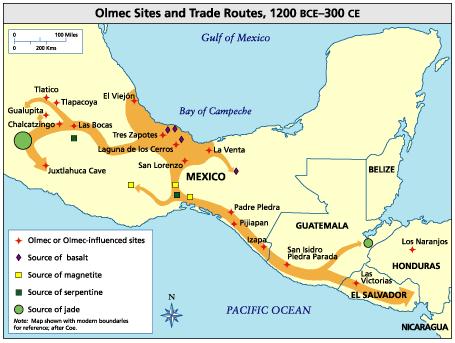
Olmec Sites and Trade Routes
Quiz
Where were the Olmecs located?
- Southern Gulf Coast of Mexico
- The states of Veracruz and Tabasco
- Beacon Hills
- New Mexico
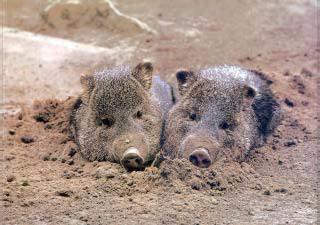
Did you know?
The Olmecs were also hunters who often hunted deer, turtles, alligators, and peccaries (wild pigs). They also fished and collected shellfish.
Olmec Farming
Civilization began in coastal lowlands, and by the early 1500s BC, the Olmec already started planting many crops in the rich soil along the banks of the area’s river. Olmec lands were already prone to flooding, thus farmers often built their houses on artificial hills, to avoid damage; however, the floods were able to deposit silt and mud, which created fertile land for the farmers. In a year, farmers were able to grow and harvest about two or more crops, thus giving them a surplus of food. They grew different crops, such as maize (corn), squash, beans, tomatoes, and chilies.
Quiz
About how many crops were Olmec farmers able to farm and harvest in a year?
- About three-four
- About 17
- About two or more
- About one or zero
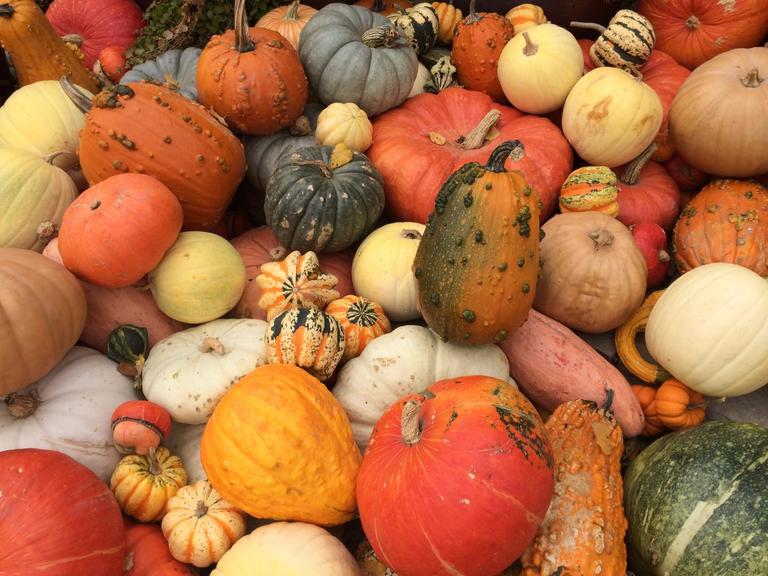
Did you know?
Farmers usually planted their maize, beans, and crops together. Planting them together allowed the squash vines to spread out on the vines, between the stalks, and for the bean plants to give the soil nitrogen. Nitrogen was an important nutrient that the maize and squash needed, and by inter-cropping, the Olmec farmers used their fertile soil in the best way possible.
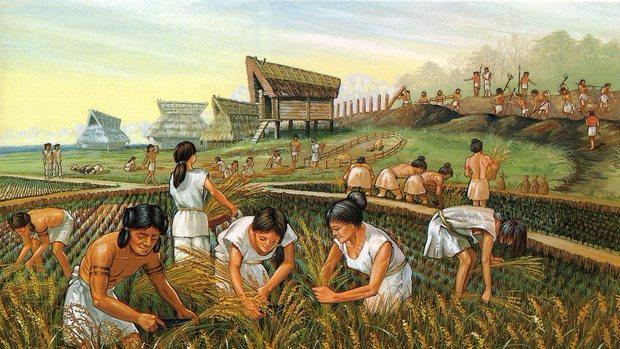
Olmecs farming and harvesting maize

In conclusion, though the Olmec civilization has passed, they still made major influences on the later civilizations, culturally, religiously, and economically. Also, don't forget they are also one of those other settlements from the past who have made an impact on who we are today.
